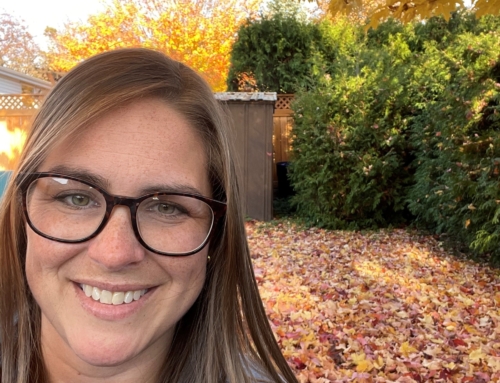This is the conclusion of a two-part series. Read Part 1 here.
My life is a living testament to the fact that no one is an island. I rely on assistants for personal care and tasks of daily living. Some people think that my needs make my life particularly challenging. It is true that in certain contexts I may be more vulnerable than an able-bodied person and I may experience some discomfort if an assistant is unable to be present when I am in need or if a new assistant isn’t quite familiar with my regular routine. However, I suspect that there are other contexts in which able-bodied people are more vulnerable than me especially as manifested in the lookout for my safety.
Ubuntu
I appreciate the African wisdom of Ubuntu, I am because we are. I am blessed to have at least five assistants who make it their responsibility to ensure that I can function to the best of my ability. Their efforts enable me to work at a job that I love, serve as a Regional Councillor in my local government, and play an active role in my church and wider community. I view the support and care that they provide as an extension of God’s love and care for me.
While my personal care assistants play an instrumental role in my daily life and physical well-being, it is a privilege for me to participate in their emotional and spiritual care, personal and career development. I cannot offer them the same kind of support that they offer me but then again, if I could do so, we would not really need each other. Thus, it is in fact our difference in skills and abilities which God has given us that enables each of us to participate in each other’s lives in meaningful ways.

Photo by Clay Banks on Unsplash
Mutual care
There are able bodied people who have asked me if it is difficult for me to “ask for help all the time.” The answer is no. There are several reasons for this. First of all, I make an effort to do what I can for myself so I am not asking for help all the time. Secondly, I try to foster mutually helpful relationships. Therefore, as much as I expect that God will provide others to meet my needs when I reach out for help; I feel a sense of responsibility toward them and try to provide opportunities for them to reach out to me whenever they are in need. I then make an effort to support them in every way I can.
Another question people often ask me is “do you wish you could be independent?” The truth is, I do value personal autonomy and self-determination (i.e. the right to make my own choices). However, I view independence much more broadly than some. For me, independence is not necessarily about accomplishing a goal on my own, but rather, knowing how to accomplish the goal and when to involve others who have different skills and abilities. I believe that fostering such interdependence as opposed to independence honors others’ God-given gifts and talents and often contributes to much better quality and efficiency as it allows opportunities for people to contribute in the ways they are gifted in.
The richness of community
Independence might seem easier or more advantageous than interdependence. Yet, I know from experience that six unique sets of skills and abilities are far greater than one, and that analysis only represents the skills of myself in collaboration with my attendant care team. Further, I would not forfeit interdependence for independence because the sense of love and community and the overall richness which I gain from the support of others, as well as supporting and encouraging those who support me, is far greater than the self-satisfaction of self-sufficiency.


